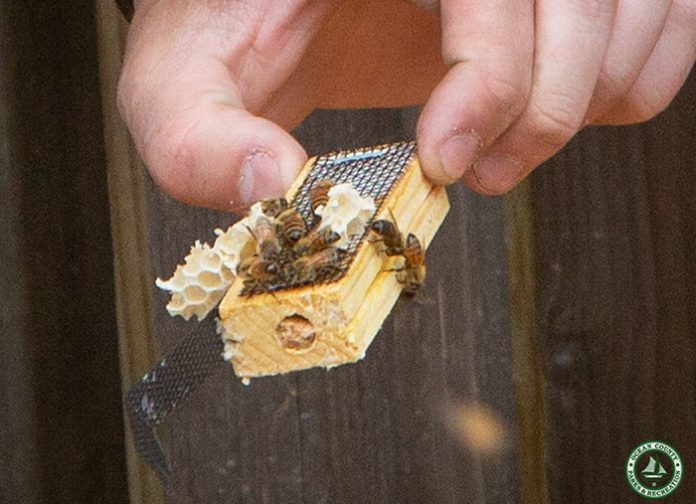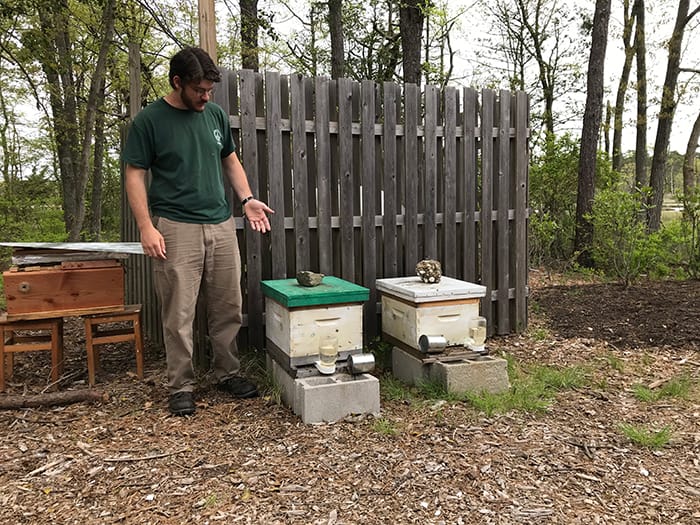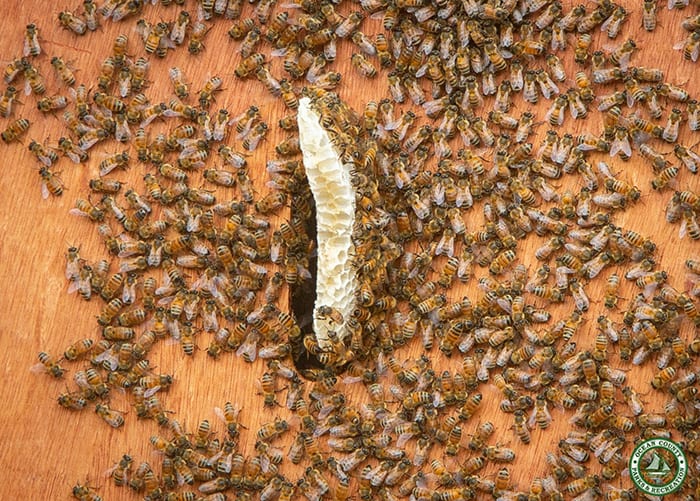
TOMS RIVER – Long live Queen Agatha and Queen Ursula.
Those are the two queens of honeybee hives that were set up the first week in May. The two hives are by the Cooper Environmental Center, on the opposite side from the butterfly garden. Some bird feeders are next to them, providing raccoons or whatever wanders nearby an easy bite to eat so they won’t be tempted to steal honey, recreation aide Zach Keczkemethy said.
They were shipped to the park 1,000 or so bees in one box. The queen is separate from the hive. She comes in a delivery in a cell closed off by sugar candy. The bees eat through the candy to free her.
“The common wisdom is to give them time to settle in,” Keczkemethy said. Then check on them to see how they are getting along.
The two hives can co-exist, and won’t compete for resources, he said, despite being neighbors.
This is not the first time Cattus has played host to a hive. Last year, their queen died and the hive failed, he said.
The park holds educational programs throughout the year (which can be found at OceanCountyParks.org) and the hive provides another learning opportunity – to show people how important the insects are to the natural world.

According to the Earth Day Network, one-third of the country’s food depends on pollination from honey bees and other insects. The number of hives has in America decreased from 6 million in the 1940s to about 2.5 million today.
The United States Department of Agriculture released a study showing there was a 9 percent decline in colonies of five or fewer hives from Jan. 1, 2016 to Jan. 1, 2017. During the same period, there was a drop of about 10,000 colonies of more than five hives.
Information like this has made it out to the general public. Keczkemethy said hobby beekeeping and people making their yards more bee-friendly has helped with these statistics.

Keczkemethy said that local residents can help bee populations by:
- Plant only native species
- Leave weeds to grow in an unused part of your yard
- Limit pesticides and chemical fertilizers
The Earth Day Network suggests doing these things to help support honey bees:
- Reduce the amount of pesticides that are killing honey bees and other pollinators
- Support local beekeepers by getting your honey from local farmers’ markets and other local businesses
- Create a pollinator habitat with bee-friendly plants in your yard or on your school or business property
- Plant a bee water garden to attract pollinators







